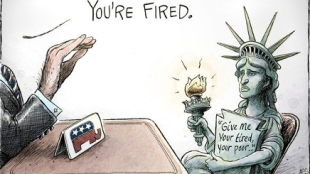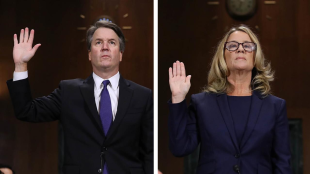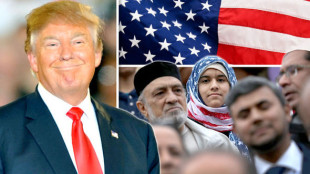Kamala Harris Should Let John Roberts Off The Hook
(Sources) The Constitution provides that when the President of the United States is tried in the Senate, the Chief Justice of the Supreme Court, rather than the Vice President, presides over the President’s trial. This time last year, the Chief Justice of the Supreme Court, John Roberts, fulfilled his constitutional duty by presiding over Donald Trump’s first impeachment trial. The otherwise reserved Roberts made his uneventful political debut in the Senate, assuming a role he likely despised given the extent to which he has avoided entangling himself in the partisanship which has dominated his time on the Court. This time, however, Mr. Roberts may be off the hook. While some have already assumed that John Roberts will preside over Trump’s second trial, this conclusion is doubtful, and Mitch McConnell’s most recent memo on the upcoming trial flags this area of confusion. John Roberts, however, should not need to scurry from the Capitol steps over to the Senate chamber immediately after inaugurating Joe Biden on January 20th. While the Constitution designates the Chief Justice, rather than the Vice President, as the presiding officer when the President is tried, it says nothing about the trial of a former president. This makes sense [read more]





